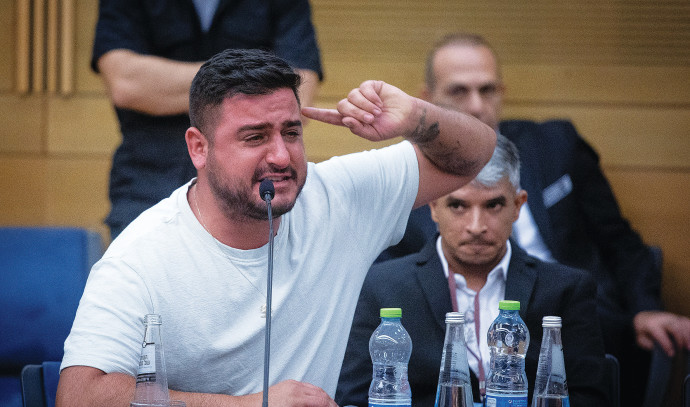An amendment added to the 2024 National Defense Authorization Act (NDAA) by the US House of Representatives established a grant program to fund research collaborations between American and Israeli researchers of post-traumatic stress disorder (PTSD).
The amendment, which has strong bipartisan support, directs the US Defense Department to award grants and oversee the grant program to explore better treatment options for US service members with PTSD.
“During and after my two combat tours in Iraq, I saw firsthand the impact of PTSD on my brothers and sisters in arms,” Representative Pat Ryan (D-NY) told The Media Line.
Ryan, a former US Army intelligence officer and graduate of the US Military Academy at West Point, co-sponsored the legislation, along with Rep. Mike Waltz (R-Fla.), who has served in combat zones throughout the Middle East and Africa as a US Army Special Forces officer.
“We simply have to do more for those who have sacrificed so much for this country. I’m proud to join Congressman Waltz in introducing this crucial legislation, which dedicates desperately needed resources to researching and treating PTSD. Together, we will help deliver the best-in-class care that our service members deserve,” Ryan said.
World leader in combating PTSD
According to the American Israel Public Affairs Committee, Israel is a “world leader in combating PTSD” and is already working with the United States to treat service members with PTSD. So the Defense Department grant program makes sense to many experts.
“You have two populations that have, unfortunately, with a great deal of experience dealing with PTSD and this could provide the best and brightest from these countries to work together and come up with innovative solutions,” EJ Kimball, director of Policy and Strategic Operations at the US-Israel Education Association, told The Media Line.
Although the 2024 NDAA still has political hurdles to overcome before being sent to President Biden to be signed into law, the “United States-Israel PTSD Collaborative Research” amendment is expected to be in the version that eventually lands on the president’s desk.
“I haven’t seen anything that would make it controversial. We do a lot of joint research, not just in the medical space, but in defense and environmental collaboration and technology. There are so many avenues we are working with Israel on that while there are certainly elements that could make Israel a controversial partner for certain members of Congress, usually that doesn’t come up when it is things of a non-controversial nature,” Kimball continued.
It isn’t the only PTSD research amendment that is expected to make it into the final 2024 NDAA after its addition in the House of Representatives.
Representative Dan Crenshaw (R-Tex.), a former US Navy SEAL, has also proposed an amendment to the law that deals with PTSD.
“Twenty-seven percent of post-911 veterans are diagnosed with PTSD and the truth is we haven’t made a whole lot of progress in actually treating it,” Crenshaw told the House Armed Services Committee.
Crenshaw’s legislation directs the Defense Department to study DMT, MDMA, Ibogaine, and psilocybin therapy for US service members diagnosed with PTSD and/or traumatic brain injuries. It also permits service members to take part in psychedelic therapy research.
“We have to think outside the box. We have to do something new,” Crenshaw said.
The US does not have a lot of experience with medicinal psychedelics research. The US Food and Drug Administration only released a first draft guidance on clinical trials with psychedelics drugs on June 23, 2023.
Meanwhile, Israel leads the world in medicinal psychedelics research.
“There is a possibility that [the PTSD amendments] could intersect, just in the sense of looking at all these ways to deal with PTSD and treatments that can help relieve it,” Kimball said.
The NDAA cleared the US House of Representatives by a vote of 219-210, split almost evenly down party lines. It is currently in the hands of the US Senate for approval before it will be passed to President Biden for final approval.
Rep. Waltz’s office did not respond to The Media Line’s request for comment.



